What are the health benefits of kombucha? And is it as healthy as everyone says? All the answers here!

As the world guzzles down kombucha with the hopes of it curing all ailments from high cholesterol to stubbed toes to unbalanced chakras, you can’t help but wonder…is kombucha really that healthy?
Being a degreed nutritionist and food scientist, I wanted to find real research on this. So I dug into the data to answer the question once and for all – what are the real health benefits of kombucha?
There’s plenty of “evidence” from studies which were performed in test tubes and on rats. For example, a study found that kombucha was beneficial for rats with high cholesterol. But without a human trial showing the same thing, we can’t say much from this.
It’s difficult to extrapolate lab findings into real benefits for humans without randomized, controlled human studies. But with humans having consumed kombucha for thousands of years, here are four kombucha health benefits we do know.
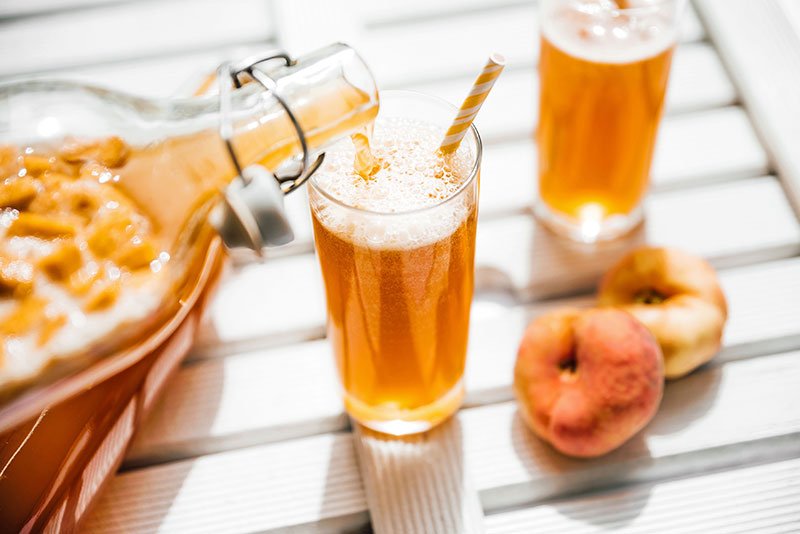
1. Kombucha may contain gut-loving probiotics
As with all fermented foods, kombucha contains a variety of bacteria which may be healthy for your digestive system.
A healthy human gut contains trillions of microorganisms (or microflora) which help us to digest food, absorb nutrients, and prevent infection. When this microflora is damaged (for example, by taking antibiotics), or for maintaining a healthy microflora, supplementing with dietary probiotics (like kombucha!) can be useful.
And this microflora is a powerful thing. There is research indicating probiotics can be useful for those suffering from IBS or diarrhea. Further, new research is connecting microflora health to obesity. A causal study found that those with less microbiome diversity had higher rates of obesity and insulin resistance.
While the probiotics in kombucha are certainly promising, don’t rely on kombucha alone for a healthy digestive system. For the healthiest gut, incorporated a wide variety of probiotic containing foods – like yogurt, kefir, sauerkraut, and kimchi – as well as fiber from fruits and vegetables. (P.S. you can also eat the kombucha SCOBY, which has both probiotics and fibers).
“Curious if there is a need for some “balance” of PREbiotics to go with the ferments for a more efficient gut biome?”
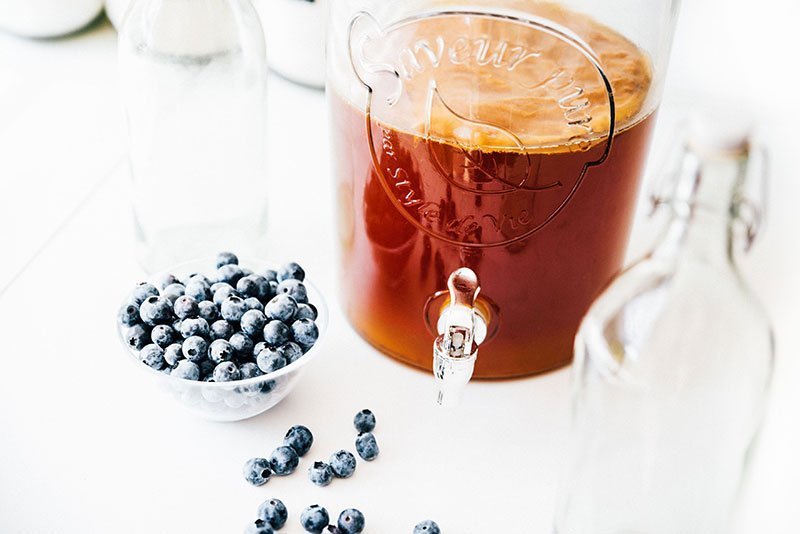
2. Kombucha can help you cut sugar
For those who regularly drink sugary sodas and beverages, drinking kombucha instead can help cut your sugar intake while still getting that delicious fizzy fix.
1 cup of kombucha contains about 12g of sugar (50 calories). Meanwhile, 1 cup of soda contains 25.6g of sugar (96 calories).
When you brew your own kombucha, you can control the sugar content even more. When you allow your kombucha to ferment for longer, the bacteria and yeast have more time to “eat” the sugars, which they then turn into carbonation and acidity.
A study found anecdotal evidence that kombucha may stabilize blood sugar in diabetics, though this was neither controlled nor randomized.
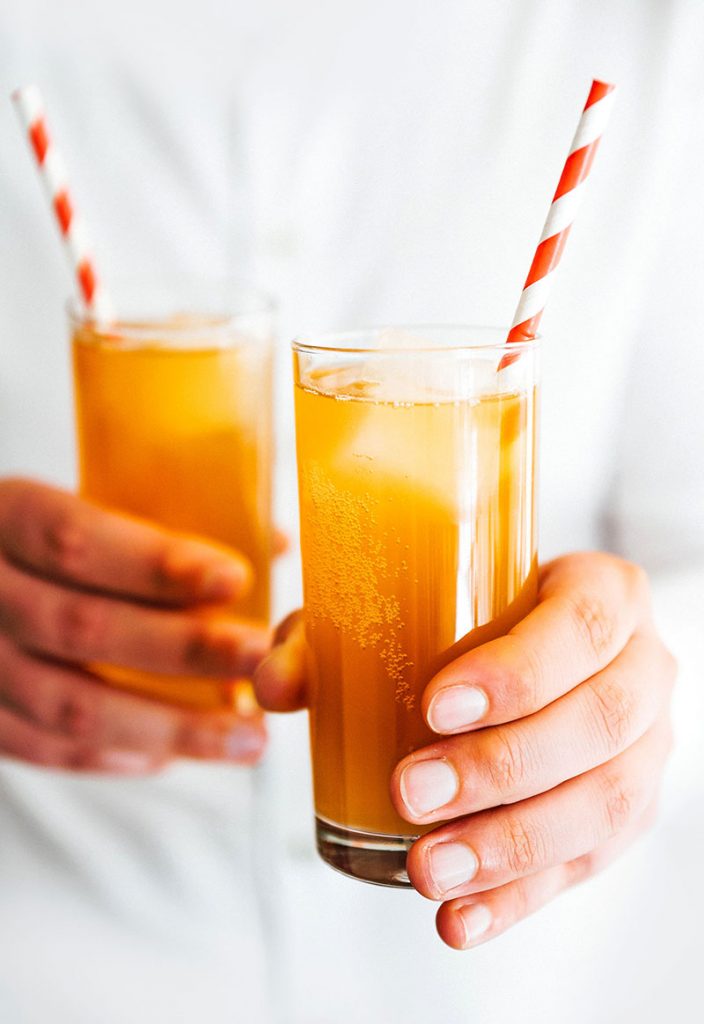
3. Antioxidants in kombucha can help you stay healthy
Kombucha is made from tea, which is a naturally good source of antioxidants and polyphenols. These anti-oxidizing properties remain in the kombucha after the fermentation, making kombucha a great way to pack in some antioxidant power.
What do antioxidants do in your body? The name says it all! They fight oxidation, neutralizing harmful “free radicals” (molecules that can damage other cells, leading to things like heart disease and cancer).
To pack even more antioxidants into your homemade kombucha, use green tea (as opposed to black tea), and flavor your kombucha with fresh fruit for the second fermentation! You can also add nutrition boosters, like moringa oleifera in our Green Goddess Kombucha.
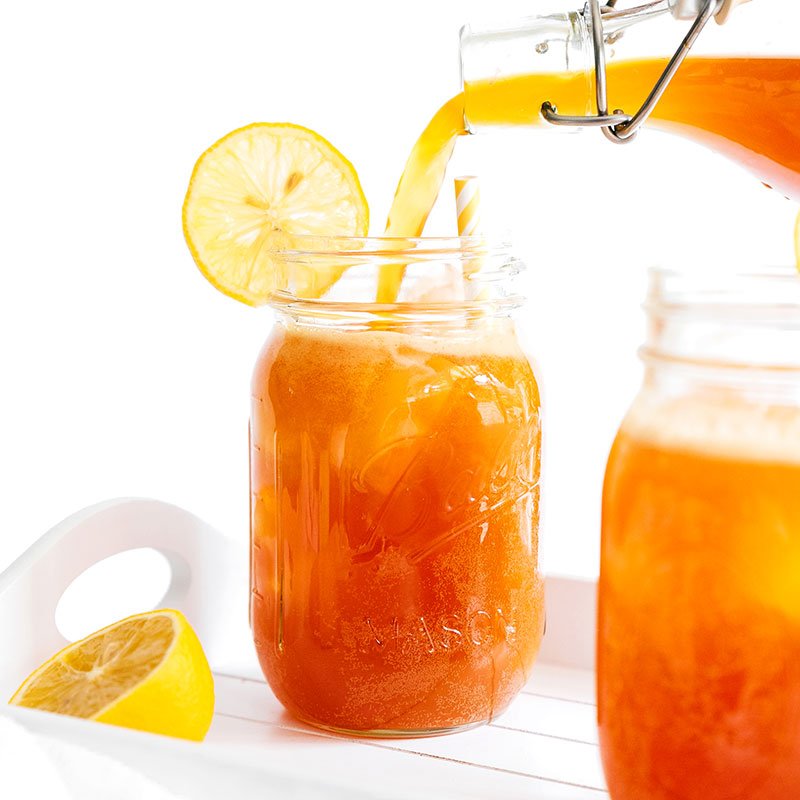
4. Kombucha keeps you hydrated
If anything, kombucha is a great way to add a little hydration to your day! Because let’s be honest, we’re not drinking enough water, friends.
The average adult needs eight 8-oz glasses of fluid per day. Make kombucha one of those! (Learn about the best time to drink kombucha here.)
How much kombucha should you drink per day? The Centers for Disease Control recommends that you can safely drink 4 oz (1/2 cup) of kombucha 1 to 3 times per day, but we recommend 16 oz of kombucha per day.
5. Kombucha Is Packed With B Vitamins
Just one cup of kombucha can contain about 8870% of your daily needs for Vitamin B12. This vitamins is found almost exclusively in animal products, making it difficult for vegans and vegetarians to get enough of it!
The bacteria and yeast in kombucha produce this healthy vitamin, making it a great choice for vegans. (Don’t be too concerned about overdosing on B vitamins; these are water-soluble vitamins and any excess amounts will pass right through you).
So can kombucha be unhealthy?
While kombucha does have its share of credible health promises, it’s not always healthy.
Kombucha contains live bacteria, meaning bad bacteria can slip in. For a healthy adult, these bad bacteria shouldn’t be a problem and can be killed in the gut. But for those who are immunocompromised (such as from illness), those with weaker immune systems (children and elderly), and pregnant women should not drink kombucha.
Kombucha also contains trace amounts of caffeine and alcohol, and your sensitivity to each should be taken into account before popping open a bottle. Read more on the potential side effects of kombucha here!
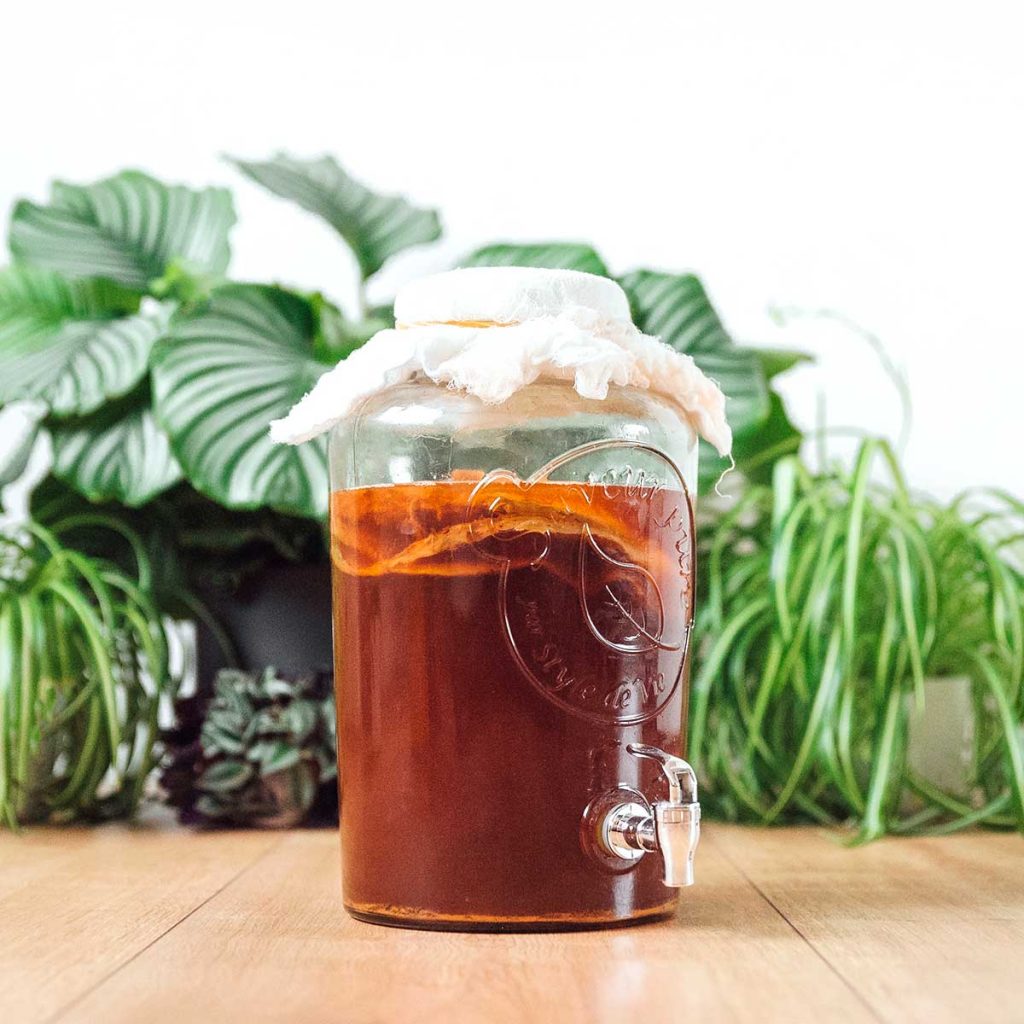
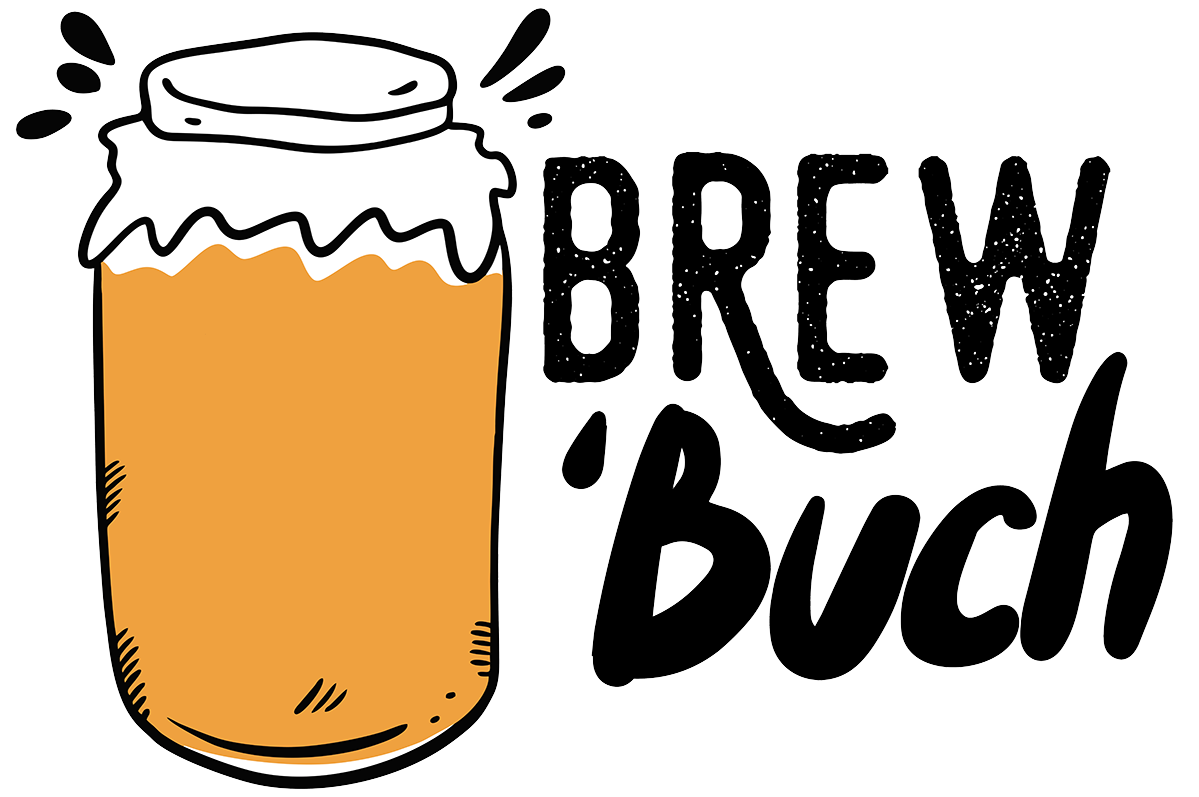
Nice article! Thanks. I have been batch brewing for a little while now and always have bottles in the fridge for daily consumption. My 19yr old loves it when he’s home from college. Curious if there is a need for some “balance” of PREbiotics to go with the ferments for a more efficient gut biome?
Always! But those wouldn’t come from kombucha, those are more along the lines of plant fibers 🙂
This is a Great Useful Source for me – This is my first time Making my own Kombucha and I’ve already made my first Fermentation and its been going 4 days – I made 1 Gallon – used 7 tea bags – 4 green tea and 3 black tea – Im super Excited
But a little Nervous about the 2nd Fermentation process- ( that Burst thing scares me a bit, Just saying) I did buy your suggested Flip top glass bottles-
Hi, Sarah! I have a question in regards to my SCOBY. I’ve had to take a break from brewing due to a kitchen renovation. It’s been about 6 weeks since my last brew. How long can it be left in the jar with only about a cup or two of liquid from my last brew? Are my SCOBYs bad? I have a jar with Jun and another with KT.
The SCOBYs should be fine! Check out this article where we go through how to take extended breaks from brewing 😀
Great article, enjoy your news letter,
Have a question, I have brewed 3 batches of kombucha and have only ever got a light effervesence for for carbonation, I have been reusing commercial kombucha bottle and wonder if that might be my problem? I bought flip top Grolsh style bottle for round 4, wish me luck
The new bottles should help! Here are some more ideas to give your kombucha more fizz. Happy brewing!
Ginger is the key for me to get the Fizz!